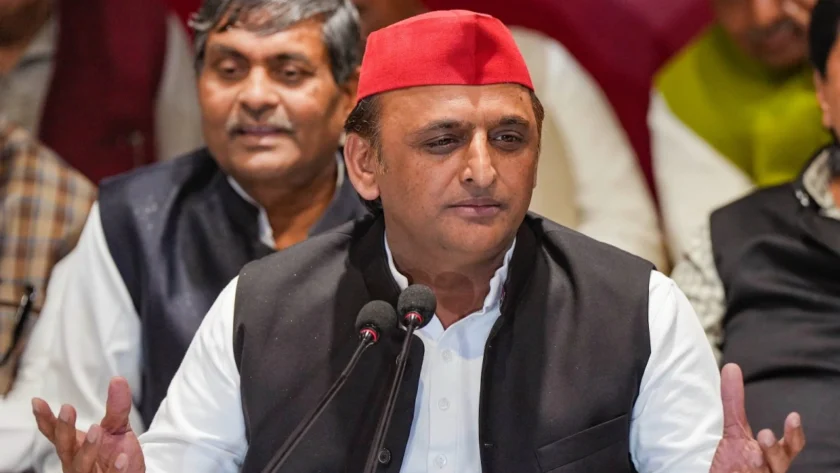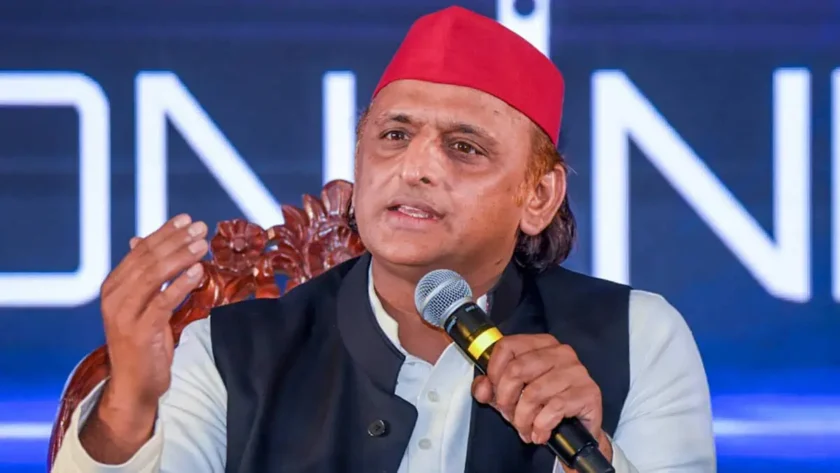Lucknow: In the fertile soil of Indian public life, a particularly toxic weed flourishes: patriarchal entitlement disguised as religious piety. The latest noxious bloom comes from Maulana Sajid Rashidi, whose disgraceful comments on Samajwadi Party MP Dimple Yadav are a textbook case of misogyny masquerading as morality. His unsolicited sermon on her “unsuitable” attire in a mosque is not a defense of faith; it is an attack on the dignity of a woman and an arrogant assertion of control. But the original offense, sickening as it is, has been compounded by the subsequent political theatre, where principles have been predictably sacrificed at the altar of opportunism.
Let us be brutally clear about Maulana Rashidi’s transgression. His assertion that a woman without a head covering is somehow “naked” is not a cultural nuance to be debated; it is a putrid mindset that belongs in a bygone era. It is the language of control, designed to reduce a female parliamentarian, a public representative, to nothing more than her attire. His defense—that he “didn’t exactly carry out a terrorist assault”—is a pathetic and insulting trivialization. He is right; words are not bombs. But they are poison, and his words seek to poison public space, making it hostile for any woman who dares to exist outside the narrow confines of his medieval worldview. The FIR filed against him is not an “exaggeration”; it is the bare minimum legal response to a public and intentional insult.
While the Maulana’s audacity is the root of this sorry episode, the responses from the political class are a study in cowardice and calculation. SP chief Akhilesh Yadav’s “circumspect silence” is deafening. In a moment that demanded a forceful and unequivocal defense of his wife and party colleague, he chose the path of craven political calculus, presumably terrified of alienating the very clerics who peddle this venom. His silence is not neutrality; it is appeasement. It signals that a woman’s honour is a negotiable commodity, worth less than a handful of votes.
Dimple Yadav’s own response, while pointing to the glaring hypocrisy of the BJP on women’s safety in Manipur and during “Operation Sindoor,” was a strategic misstep. By resorting to whataboutery, she dodged the opportunity to meet the attack head-on. She allowed her own agency to be subsumed into a partisan squabble, when she could have delivered a powerful rebuke to the misogyny aimed squarely at her, a rebuke that would have resonated with women across all party lines.

In this chorus of inadequacy, the lone voice of moral clarity came from SP MP Ikra Hassan. Her denunciation of the cleric as a “disgraceful criminal” and her statement that such men are “neither the leaders of any particular religion nor the guardians of any faith” was precise, powerful, and principled. She did what her party leader would not: she drew a bright line between faith and bigotry.
This incident is more than just another political controversy. It is a stark reminder that a woman’s body remains a battleground for men to score religious and political points. From the pulpit to the parliament, her choices are scrutinized, her presence policed, and her dignity debated by self-appointed censors. The real controversy is not that a cleric uttered something vile—that, sadly, is not new. The real scandal is the collective failure of our political leadership to condemn it without caveat, deflection, or fear. Until they do, the unholy audacity of men like Maulana Rashidi will continue to poison our nation.










